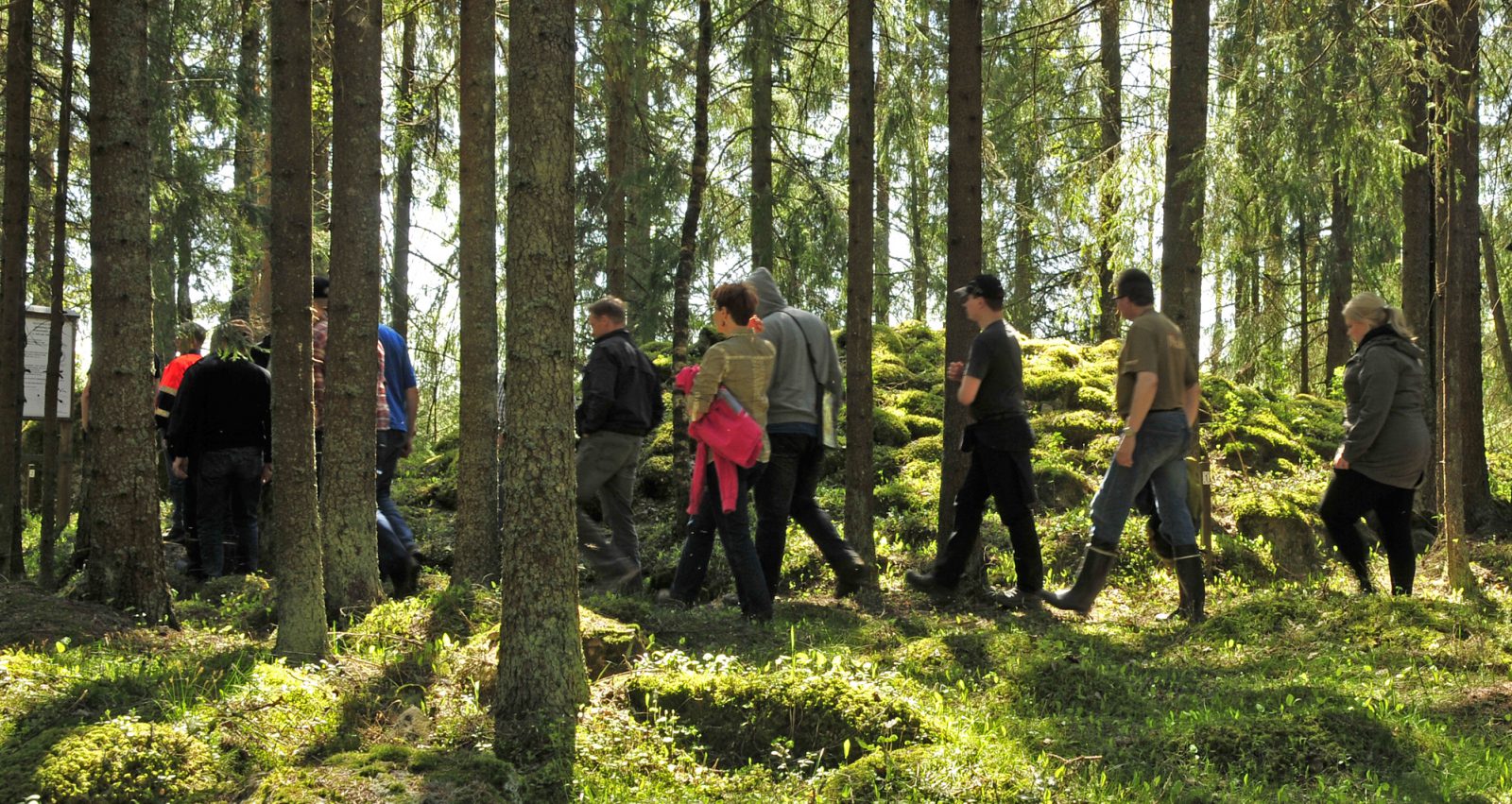
Archaeology as a hobby
Hobbies revolving around archaeology and archaeological cultural heritage are popular forms of pastime. A hobbyist may be interested in archaeological phenomena both on land and in water. Like elsewhere, archaeology has been a popular pastime in Finland, too, for several decades.
Typically, hobbyists concentrate on a certain subject matter. For example hobby divers might be interested in visiting various shipwrecks and documenting them. Those interested in archaeological entities on land can, for example, take part in the inventories and excavations or make trips to archaeological sites. Some hobbyists have done important work by conducting more extensive studies on rock paintings and marine history, to name a few. Some have also studied archaeology in the open university, for example.
People interested in metal detecting focus on finding metal objects and their fragments. Not everyone is interested in the past, but some do search for old objects and archaeological entities. Instructions on metal detecting can be found in the publication
Antiquities, ancient monuments and metal detectors: an enthusiast’s guide and via the service email address metallinilmaisin@museovirasto.fi.
Many hobbyists are members in clubs that often have their own newsletters and online communication channels. Associations organise courses and trips and pass on information about the hobby to their members. In addition, associations organise exhibitions and presentations together with museums and other operators.
Tips for hobby archaeologists
Educate yourself about the laws and regulations that form the framework for your hobby. For example, the Antiquities Act (295/1963) defines the permissible activities at stationary relic sites and shipwrecks. It also specifies how to deal with artefacts.
Learn about archaeology and the cultural heritage by reading the Finnish Heritage Agency’s instructions, guides and publications. You can also always ask for advice from the Finnish Heritage Agency via email (palaute@museovirasto.fi), by calling (tel. +358 (0)2 95 33 6000) or by contacting a provincial museum.
Learn about the protection of stationary relics and shipwrecks (read more: Protecting the archaeological cultural heritage). Excavation at a known stationary relic site and its buffer zone is prohibited without a permit issued under the Antiquities Act. If you discover a previously unknown stationary relic or an entity you believe to be one, stop the excavation and all other activities immediately. Notify the Finnish Heritage Agency of your discovery without delay.
Safeguard all of our archaeological entities and shipwrecks as part of your hobby. According to the Constitution of Finland (731/1999), we all share the responsibility for nature, its diversity, the environment and the cultural heritage.